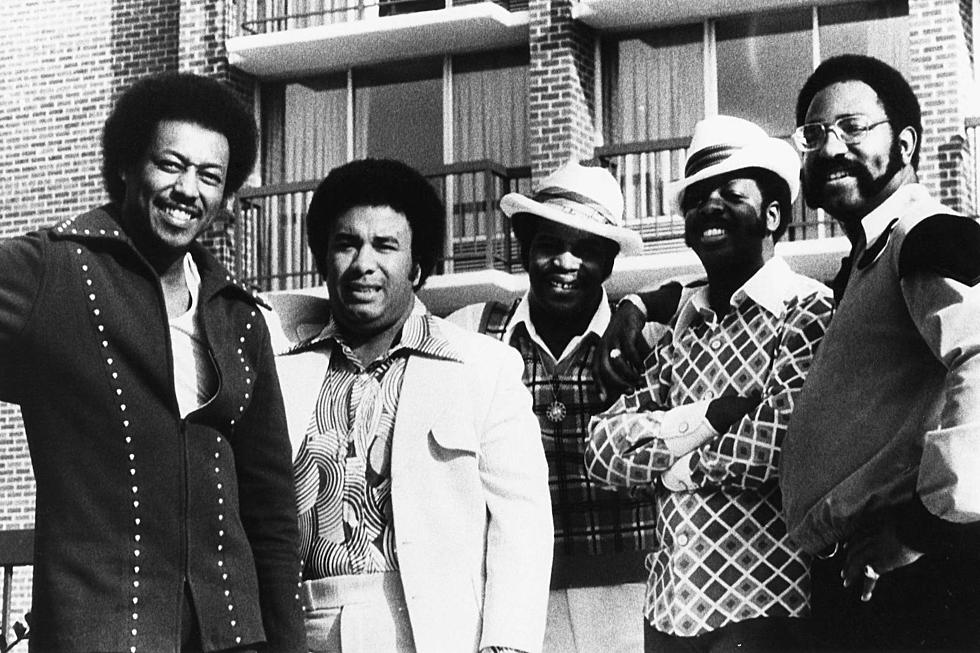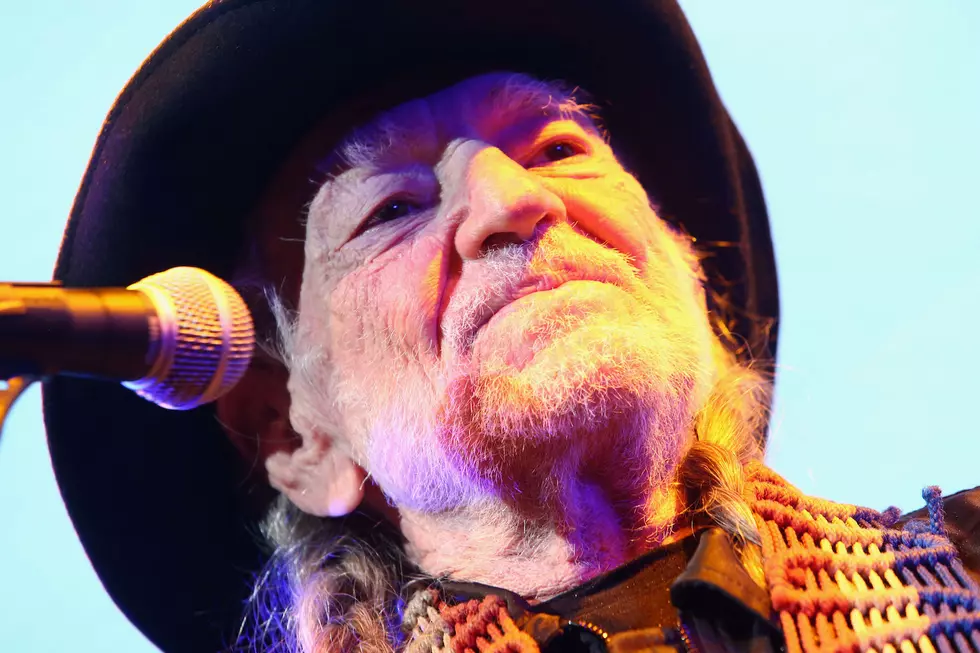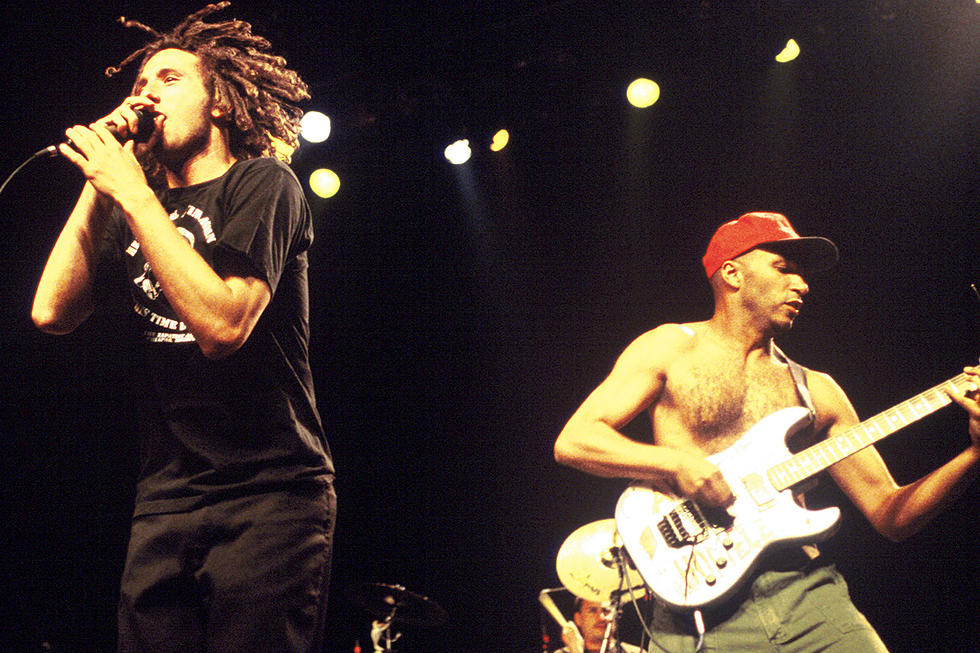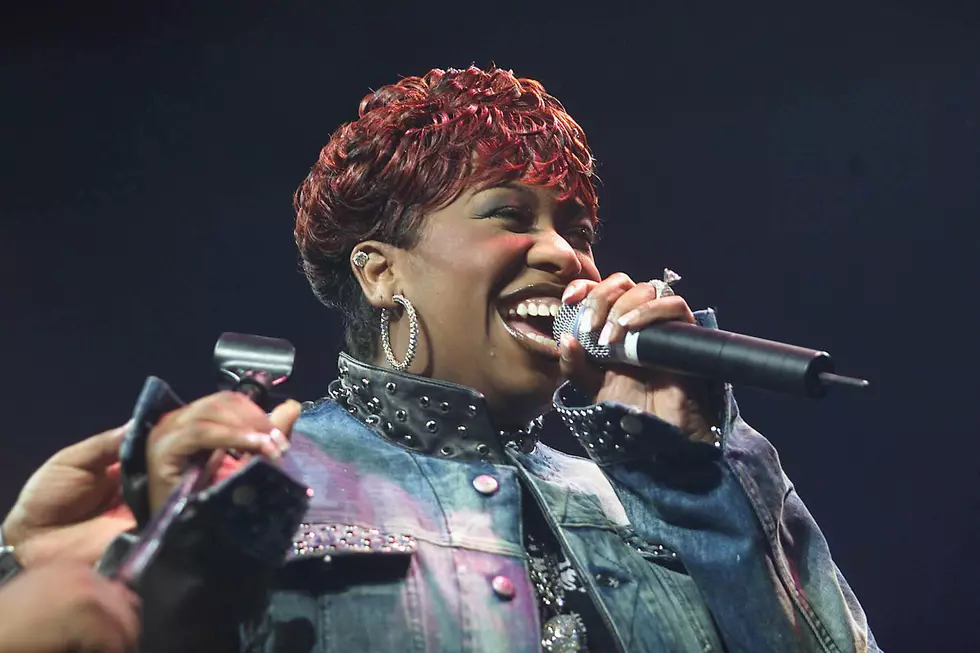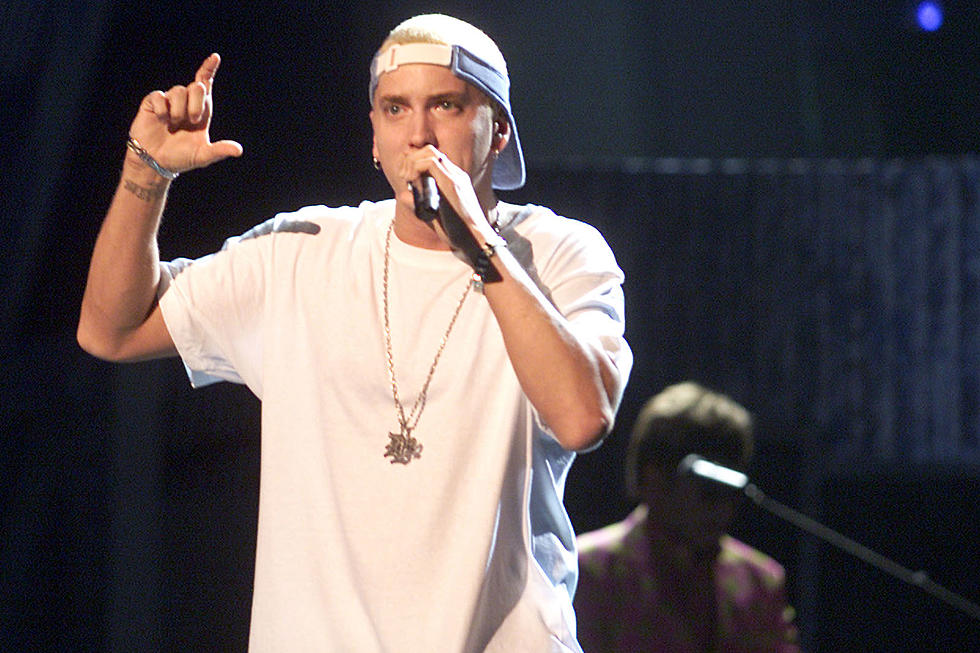
Five Reasons Eminem Should Be in the Rock and Roll Hall of Fame
The Rock & Roll Hall of Fame's entire existence has been leading up to the nomination of an artist like Eminem. Curmudgeonly rock fans may sneer at the very mention of his name, but the Detroit rapper, who was born Marshall Bruce Mathers III, is a textbook Rock Hall candidate.
His career got off to an inauspicious start with his 1996 debut album Infinite, which he sold largely out of the trunk of his car to the tune of an estimated 1,000 copies, at most. The failure of Infinite inspired Eminem to create his Slim Shady persona; consequently, it also marked the last time in his life that he wasn't one of the most famous artists on the planet.
In 1997, having recently been fired from his job and evicted from his home, Eminem placed second in Los Angeles' Rap Olympics. But his skills on the mic caught the attention of an Interscope Records intern, who passed his music on to Jimmy Iovine and Dr. Dre. Eminem signed to Interscope and released The Slim Shady LP in 1999. Produced largely by Dre, the album reached No. 2 in the U.S. and sold more than 4 million copies, transforming Eminem from a piss-broke battle rapper into one of the most successful, talented and controversial artists in the world. Still, this newfound success was only a glimmer of what was to come.
Eminem's next album, 2000's The Marshall Mathers LP, debuted at No. 1 and sold a record 1.76 million copies in its first week. The rapper's life became a whirlwind of sold-out shows, celebrity feuds, drug addiction and allegations of misogyny and homophobia. More gonzo album sales followed, and his come-up was immortalized in the 2002 film 8 Mile, which produced the No. 1 hit "Lose Yourself," his first of many.
The excesses of fame soon caught up to Eminem, and in 2005, he went on a music-industry hiatus. Following a 2007 methadone overdose, he got sober and returned with the chart-topping Relapse in 2009. His albums continued to sell in the millions, and despite his sobriety, Eminem proved he was still capable of shocking listeners and critics with his ghastly lyrics, which still touted violence and were occasionally laced with sexist and homophobic epithets.
Eminem's success is undeniable, and his career is cinematic in scope, full of epic highs and devastating lows. That dichotomy makes him one of popular music's most fascinating figures and a perfect candidate for the Rock & Roll Hall of Fame. Here are five reasons Eminem deserves to be enshrined.
He's One of the Best-Selling Artists of All Time
To call Eminem successful would be an understatement. Between 2000 and 2020, he debuted 10 consecutive albums at No. 1 on the Billboard 200, making him the first artist to do so. He's the best-selling rapper of all time and the best-selling artist of the '00s in the U.S., with two of his LPs — 2000's The Marshall Mathers LP and 2002's The Eminem Show — earning diamond certifications for U.S. sales exceeding 10 million. Even a five-year hiatus from the music industry couldn't dull his shine: He returned in 2009 with the chart-topping Relapse and has continued to rack up multiplatinum albums and chart-topping singles. This unprecedented commercial dominance has made Eminem an unshakeable pillar of pop music and pop culture — his album sales dwarf most Rock Hall inductees — and his staggering achievements deserve to be acknowledged by the institution.
He's Been Blending Rap and Rock for Years
Purists may balk at the notion of Eminem's Rock Hall induction, but several members of rock's old guard have welcomed him with open arms. The rapper performed his iconic 2000 hit "Stan" with Elton John at the 2001 Grammy Awards in response to criticism from GLAAD over his homophobic lyrics, summoning waves of applause when he hugged John at the end of the performance. He sampled Aerosmith's "Dream On" on The Eminem Show's "Sing for the Moment," which also features a guitar solo from Joe Perry. (That album's "Till I Collapse" also interpolates the intro to Queen's "We Will Rock You.") His 2013 album The Marshall Mathers LP 2 samples a who's-who of classic rockers, including Billy Squier's "The Stroke" ("Berzerk"), Joe Walsh's "Life's Been Good" ("So Far … ") and the Zombies' "Time of the Season" ("Rhyme or Reason"). Eminem may identify primarily as a rapper, but he's always approached his albums from a classic-rock perspective, demonstrating knowledge and respect of the genre that several of its forebears have reciprocated.
He's a Master Provocateur
From Elvis Presley to Alice Cooper to Ozzy Osbourne, rock music's success has always been predicated, in part, on its ability to shock conservative audiences. Eminem slotted effortlessly into that lineage with The Slim Shady LP opener "My Name Is," which begins with a chilling question: "Hi, kids! Do you like violence?" On his best songs — such as the bloodthirsty "Kill You" or the scarily bleak "Drug Ballad" — Eminem welcomes listeners into a macabre fantasy world, rapping about getting loaded on a smorgasbord of drugs and committing heinous crimes against his ex-wife, his mother or any of his myriad nemeses who dare to cross him. His lyrics are often heinous, distasteful and deeply offensive — but at his best, his brilliant wordplay and dizzying delivery are still undeniable.
He Acknowledges — and Weaponizes — His Privilege
No discussion of the Rock & Roll Hall of Fame — or rock music in general — is complete without the acknowledgment that the genre is founded primarily on white artists repurposing and taking credit for the innovations of Black artists. Hip-hop is no different, and because of his success, Eminem became the poster child for white privilege within the genre. He's grappled with this privilege in his music for years, predicting on 2000's "The Way I Am" that he would be "pigeonholed into some poppy sensation / to cop me rotation at rock 'n' roll stations." In 2002's "White America," he was even more explicit: "Let's do the math: If I was Black, I would've sold half." In more recent years, Eminem has examined his privilege within a broader, societal context, unleashing a freestyle diatribe against President Donald Trump titled "The Storm" and blasting racial profiling and police brutality in his 2017 song "Untouchable." During his 2022 Super Bowl halftime show performance, he took a knee in solidarity with embattled ex-NFL star Colin Kaepernick. These actions may not absolve Eminem of his past wrongs, but his willingness to grapple with the racial politics that contributed to his success is refreshing.
He Used to Hate the Very Institutions That Honor Him Now
"You think I give a damn about a Grammy? Half of you critics can't even stomach me, let alone stand me," Eminem seethed on his acerbic 2000 hit "The Real Slim Shady." Early in his career, the rapper viewed himself as a perpetual outsider, mocking and railing against the stuffy institutions that once turned up their noses at him. Those institutions started paying Eminem a lot more attention once he became one of the biggest superstars on the planet, and he begrudgingly accepted their accolades while remaining wary of them and keeping a chip on his shoulder. Eminem's Rock & Roll Hall of Fame nomination is an ironic, full-circle moment for the hip-hop iconoclast-turned-household name — and his induction would serve as the ultimate provocation against stodgy purists, from an artist who's played nearly every shock tactic in the book.
Most Awkward Rock Hall of Fame Moments
More From Ultimate Classic Rock



